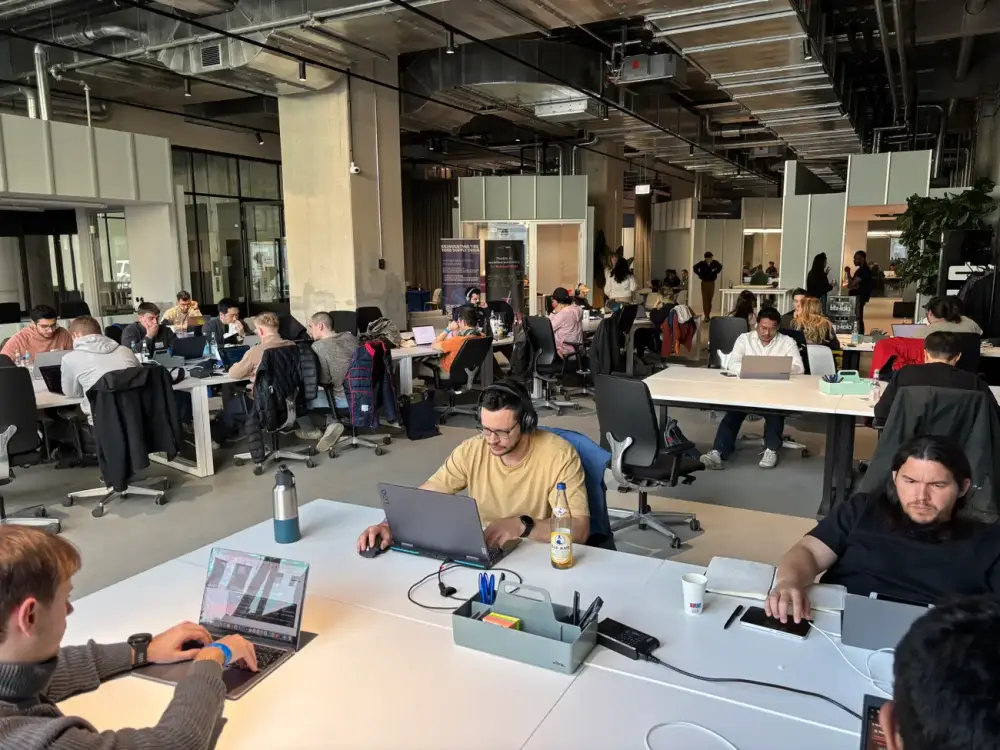
Các startup AI đang tận dụng hackathon cạnh tranh với Big Tech trong cuộc chiến thu hút nhân tài
-
Hackathon – sự kiện kéo dài từ 24 đến 72 giờ để phát triển phần mềm – ngày càng trở thành công cụ tuyển dụng hiệu quả cho các startup AI, đặc biệt sau làn sóng AI bùng nổ từ cuối năm 2022.
-
Bela Wiertz, người sáng lập Tech: Europe, cho biết AI hackathon đang diễn ra ở nhiều thành phố “ít tổ chức công nghệ” nhằm tìm kiếm nhân tài ngoài các trung tâm công nghệ truyền thống.
-
Zoe Qin (Dawn Capital) nhận định hackathon giúp startup AI “cạnh tranh công bằng” với Big Tech khi họ không thể chi tiền nhiều cho tuyển dụng hay quảng cáo trên LinkedIn.
-
Benjamin Wolba (European Defense Tech Hub) chia sẻ: hackathon giúp startup thể hiện sự năng động, gần gũi và tận tâm hơn so với môi trường khắt khe của Big Tech.
-
Hackathon còn giúp tiếp cận những ứng viên chưa từng nghĩ đến việc nộp đơn vào startup – như trường hợp của Angelo Giacco (tốt nghiệp Imperial College London), người nhận việc tại ElevenLabs sau hackathon chỉ 2 tuần.
-
Hackathon không chỉ dành cho vai trò cấp thấp – một số startup còn săn luôn cả ứng viên xuất sắc hoặc kỹ sư từ chính công ty tổ chức hackathon nếu họ thể hiện nổi bật.
-
Qin cho rằng startup AI muốn tuyển những người “dám thử, dám xây dựng”, không nhất thiết phải theo khuôn mẫu kỹ sư lập trình chuẩn mực như Big Tech.
-
Với các phòng lab AI như Mistral hay ElevenLabs, hackathon còn là cơ hội đẩy mạnh sự chấp nhận công nghệ trong cộng đồng người dùng, không chỉ là tuyển dụng.
-
Nhờ các trợ lý lập trình AI như ChatGPT, người không chuyên công nghệ cũng có thể tham gia hackathon, giảm rào cản kỹ năng lập trình truyền thống.
-
Franziska Harzheim (Flashpoint) với nền tảng phân tích kinh doanh đã góp phần xây dựng sản phẩm AI, cho thấy hackathon đánh giá đa kỹ năng và khuyến khích học hỏi tại chỗ.
-
Các công ty có thể quan sát trực tiếp cách ứng viên làm việc nhóm, giải quyết vấn đề thực tế thay vì chỉ qua bài kiểm tra lý thuyết – giúp đánh giá hiệu quả và tiết kiệm thời gian.
📌 Hackathon đang trở thành “vũ khí bí mật” của startup AI để thu hút nhân tài vượt trội, kể cả với ngân sách hạn chế. Từ các kỹ sư hàng đầu đến ứng viên phi kỹ thuật, ai cũng có cơ hội thể hiện trong môi trường thực tế, giúp startup tìm đúng người phù hợp – điều mà các phương pháp tuyển dụng truyền thống khó đạt được.
https://www.businessinsider.com/startups-hackathons-ai-talent-big-tech-jobs-2025-5
How AI startups are using hackathons to compete with Big Tech for talent
- AI startups are increasingly turning to hackathons to attract early-stage talent.
- Hackathons have long been popular in Silicon Valley for product innovation and talent discovery.
- Non-technical participants are increasingly using AI tools, broadening hackathon talent diversity.

Non-technical talent also has a shot
Thảo luận
Follow Us
Tin phổ biến



